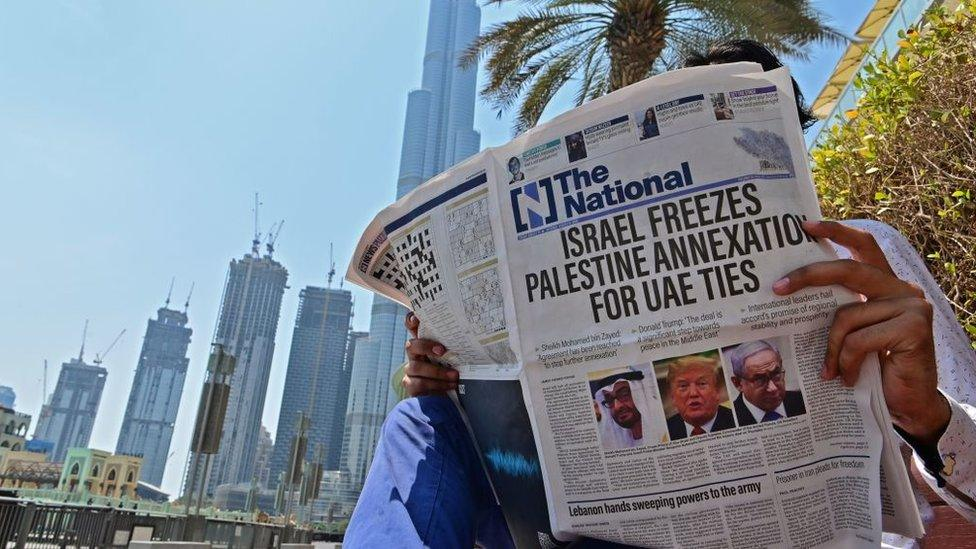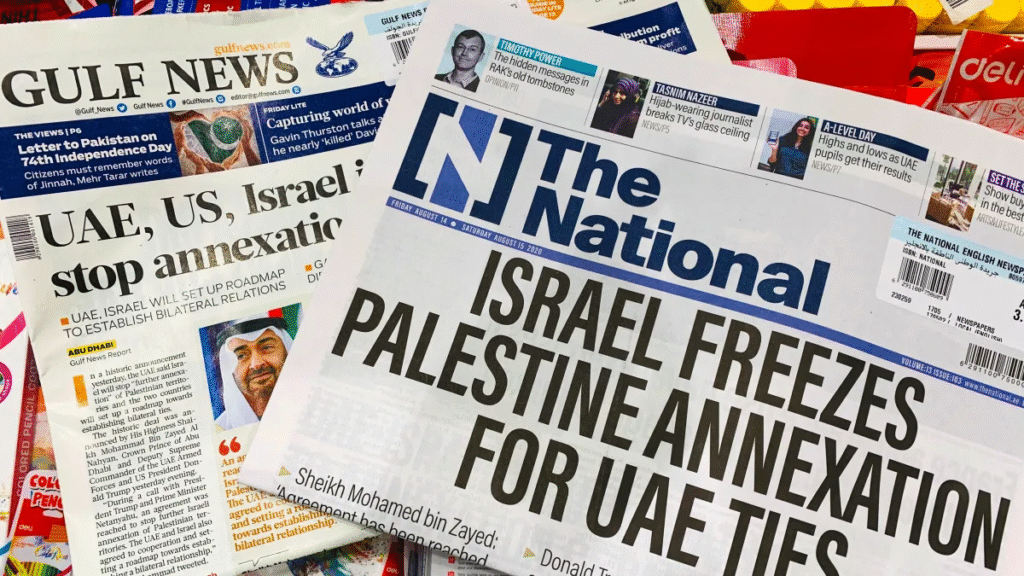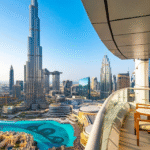Now Reading: UAE Media vs Global Outlets: What You Should Know 2025
-
01
UAE Media vs Global Outlets: What You Should Know 2025
UAE Media vs Global Outlets: What You Should Know 2025

Table of Contents
In today’s interconnected world, media plays a powerful role in shaping public opinion, spreading information, and influencing policy. Whether in the United Arab Emirates (UAE) or any other part of the world, journalism is a tool that informs society and gives people a voice. However, the approach, content, and regulation of media in the UAE is significantly different from how international media works.
This article explores how UAE press compares with international media in terms of ethics, freedom, responsibility, coverage, and control. By understanding both perspectives, readers can gain a broader view of global journalism.
Regulatory Framework: Strict vs Free

One of the major differences between UAE press and international media is the level of regulation. The UAE media operates under strict government supervision. The National Media Council (NMC) and other regulatory bodies monitor content to ensure it aligns with national values, cultural norms, and security policies. Any content that is considered offensive to religion, harmful to the state, or divisive to the public is not allowed.
In contrast, international media, especially in countries like the United States, United Kingdom, and parts of Europe, enjoy a higher degree of press freedom. Journalists in these countries can criticize government policies, expose corruption, and investigate sensitive topics without major legal restrictions, protected by free speech laws.
While the UAE focuses on responsible and positive journalism, international media often embraces a more confrontational approach. This reflects the cultural and political differences between nations.
Content Style and Coverage
UAE newspapers and news channels typically focus on stories that promote national development, economic progress, innovation, tourism, and leadership achievements. The tone of reporting is respectful, optimistic, and aligned with the country’s vision.
For example, stories about the UAE’s space missions, Expo 2020, and green energy projects are regularly featured in national media. Sensationalism, gossip, and tabloid-style reporting are avoided. This helps preserve the country’s image and promotes social unity.
On the other hand, international media often prioritizes breaking news, scandals, controversial stories, and exclusive investigations. Outlets like CNN, BBC, and Al Jazeera cover a wide range of global issues including wars, protests, political disputes, and human rights concerns. The reporting style is fast-paced and often includes multiple viewpoints.
Freedom vs Responsibility
In the UAE, the press follows a model of responsible journalism. This means every piece of content must serve a positive purpose either to inform, educate, inspire, or unite. Fake news, hate speech, or defamation is strictly punished under the UAE Cybercrime Law and other regulations.
International media, though largely free, faces challenges like misinformation, biased reporting, and the spread of fake news through digital platforms. Many global outlets have introduced fact-checking teams and editorial standards, but the speed of online news still makes it hard to regulate everything.
The UAE’s model may seem restrictive to some, but it ensures social harmony and protects public interest. The global model allows greater diversity of opinion but also opens the door to conflict and public mistrust.
Coverage of Local vs Global Issues
UAE press mainly covers local and regional issues relevant to Emirati residents and citizens. Topics like real estate, business, tourism, weather, health, and education are commonly reported. Coverage of international events is done cautiously and usually reflects official government positions.
International media covers the entire globe. From U.S. elections to the war in Ukraine, from climate change to refugee crises, their reach is wide. They often deploy reporters to conflict zones and developing countries to provide on-the-ground updates.
This broader coverage gives international media a global impact but also brings political and ethical complications. UAE media, while more focused, ensures news is tailored for its readers without causing unnecessary tension.
Audience Trust and Reputation
UAE press enjoys a high level of trust among residents, especially because it avoids drama and focuses on facts. Government press offices often work hand in hand with media outlets to ensure consistent messaging during national campaigns or emergencies.
In international markets, trust in media varies. Some readers trust public broadcasters like BBC and NPR, while others prefer independent online platforms. The rise of misinformation has made it harder for global audiences to know which sources are reliable.
The UAE’s strong control over media helps avoid such confusion, though critics argue it limits independent voices.
Social Media and Online Journalism

In both the UAE and the global landscape, digital media is growing fast. UAE authorities encourage responsible online journalism and regularly update guidelines for influencers and bloggers. In fact, the UAE was among the first to introduce influencer licensing to promote accountability.
Internationally, social media has become both a news source and a challenge. While platforms like X (formerly Twitter), Facebook, and YouTube give voice to independent creators, they also spread unverified and polarizing content. Many international journalists now face threats, harassment, and even censorship online.
The UAE’s regulated approach may seem conservative but offers protection against many of the harms faced by global journalists today.
Final Thoughts
The comparison between UAE press and international media shows two different yet purposeful approaches to journalism. The UAE model is centered around national identity, responsibility, and unity. It focuses on building trust and maintaining harmony. Meanwhile, international media values freedom, independence, and the right to question authority.
Both systems have their strengths and weaknesses. While the global model allows open dialogue, it can sometimes create division. The UAE’s controlled system offers stability but may limit critical discussion.
As the world becomes more connected, both UAE and global media can learn from each other. A balance of freedom and responsibility, combined with accurate reporting and ethical storytelling, may be the future of journalism in every region.
Read More:- Why Smaller Lawns Are Smarter: Save Water and Money Fast 2025






















